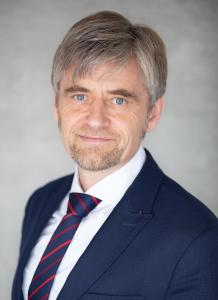Current Developments in the Balkans: A Transatlantic Perspective - Foundation Office Washington, D.C.
Discussion
Details
Prof. Dr. Christian Schwarz-Schilling and representatives of think tanks, academia and former U.S. elected officials gathered to discuss current developments in the Balkans from a transatlantic perspective. The Konrad Adenauer Foundation organized the dinner with Prof. Dr. Schwarz-Schilling to bring together experts in the Washington, DC, area to share their experiences and views about the American and German approaches to international relations in the Balkans. Topics ranged from participation in local elections to religious conflicts to the path forward for peace and preservation of human rights in the region.
Prof. Dr. Schwarz-Schilling began the evening by discussing his experience as the European Union’s High Representative for Bosnia and Herzegovina from 2006-2007. His personal feeling was that most of Western Europe had chosen to ignore what was happening in Eastern Europe, but he believed it had an obligation to pay attention to the situation and atrocities occurring in the former Yugoslavia. As High Representative, Prof. Dr. Schwarz-Schilling had a difficult time, but this was not because of the critical situation in Bosnia and Herzegovina; rather, it was because of the lack of understanding of the situation by the diplomatic community. They believed the situation was improving and that the Americans would provide aid.
The international community was ready to close the Office of the High Representative (OHR) at the completion of Prof. Dr. Schwarz-Schilling’s term, but he believed this was the wrong decision. Bosnia and Herzegovina was not ready to govern itself, but his protests received little support initially. After numerous appeals to former and then-current U.S. State Department officials, the United States eventually reversed its decision and supported the plan to keep the OHR office open. Great Britain, France and Germany all followed suit, realizing that Bosnia and Herzegovina needed a strong constitution, the rule of law and a robust court system before moving forward independently.
With a firm understanding of the role Prof. Dr. Schwarz-Schilling held in the Balkans as High Representative and later as a mediator in the region, the discussion turned to best strategies for addressing the ongoing conflicts in the Balkans.
A lively discussion ensued about the role of religion. One attendee noted that it is a driving force in politics, and that an understanding of it is crucial to engage in transatlantic work. Questions were raised about religious extremists and intolerance, and one noted that many people in the region see the atrocities there as a Western failure to protect Muslims from persecution. Another noted that the religious conflicts in the area between Muslims and Christians differ drastically from the uneasy feelings that sometimes occur between the two religious groups in Germany or the United States. There was general agreement that education is a key to moving toward more religious tolerance in the future, with one participant noting that there is a way to teach the region’s history to new generations that will help to move past a troublesome past.
Questions were also raised about elections as democracies attempt to grow in the region. The participants discussed displaced Serbs who had not returned to participate in elections, with one participant pointing out that in some recent elections in Kosovo, a relatively high portion of Serbs had voted but the community possesses a general feeling of insecurity about the future.
There was discussion about the lack of a clear government in Bosnia and Herzegovina and the seeming lack of incentive to form one. Prof. Dr. Schwarz-Schilling was asked his opinion on whether the U.S. should look to Berlin or Brussels to set a direction for the Western Balkans. Prof. Dr. Schwarz-Schilling offered his view that the reputation of the Office of the High Representative has been damaged and the office has little real involvement in the discussion now. What was critical, he noted, was for the United States to engage in the discussion.
After more than two hours of sometimes spirited debate, Prof. Dr. Schwarz-Schilling closed the evening with the view that the United States and Europe must sit together and approach the issue in tandem. Right now, the mistake of the Europeans is they feel that they must act alone, while the mistake of the United States is its lack of involvement. In either case, there seems to be more rhetoric now than influence or action from either party. Prof. Dr. Schwarz-Schilling noted that in the hearts of Bosnians, the United States rather than the Europeans must stay to keep security.
The Konrad Adenauer Stiftung was pleased to contribute to such a thoughtful and productive discussion about a transatlantic approach to developments in the Balkans. The organization is committed to promoting democracy, ensuring citizens have a voice in a free society, and preserving human rights and dignity. The Konrad Adenauer Stiftung in Washington, DC, looks forward to maintaining the dialogue between leaders in the United States and Germany as developments continue.



